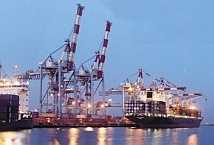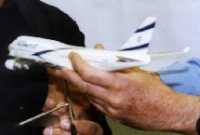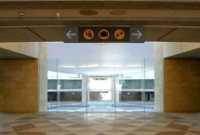Wharfage fees on imported goods will no longer be based on the C.I.F value of the cargo but on actual costs involved. Reforms to end export bias & encourage competition
Ministries of finance and Transportation released last week the long awaited details of the ports' tariff reforms, which, if approved, will be implemented gradually over the next 10 years.
The proposal was forwarded to the shipping companies, freight forwarders and representative bodies of local importers and exporters that use the ports.
The main points of the proposal are:
1. An end to cross-subsidization of imports and exports and a reduction on fuel import fees. The biggest losers will probably be the exporters who today enjoy relatively cheap port services.
2. Cargo owners (importers and exporters) will pay port infrastructure service charges directly to Israel Ports Development & Assets Company Ltd.
3. Wharfage fees on imported goods will no longer be based on the C.I.F value of the cargo regardless of the costs of handling. Instead, they will be based on actual costs involved, plus development and infrastructure fees - which will be the same for bothimporters and exporters.
)The wharfage fee, which currently account for 50% of port revenues - NIS 1.1 billion a year. For years these fees were calculated at 1.02% of the C.I.F value of the imported goods, regardless of actual handling costs. It was highly discriminatory against imports, while favoring exports (0.2% of the FOB value).
4.In 2009 wharfage fees will be calculated on 0.45% of a cargo's value for imports and 0% for exports. These figures, according to the proposal, will be gradually decreased and increased, respectively, over a 10-year period until reaching a proposed fixed rate per container equal to 0.15% of the average cargo value in 2006.
5.An incentive by way of a fixed discount to port customers willing to switch their activity to nighttime hours. A discount of up to NIS 80 on infrastructure fees will be granted to containers brought in between 10:00 P.M. and 5:30 A.M.; containers brought to the port during the regular working hours will incur a NIS 20 premium. The aim is to increase efficiency and road safety by encouraging night-time port use.
6. The regulated port tariffs will be classed as the maximum tariffs, and the ports will be able to give discounts.
Government released details of the port tariff reforms
Wharfage fees on imported goods will no longer be based on the C.I.F value of the cargo but on actual costs involved. Reforms to end export bias & encourage competition
05.05.08 / 00:00
•
More articles that may interest you
More news from Sea Transport Section
>ZIM enhances its South America Services/21.04.08
>Ashdod Port's board calls for an intervention by national ports reform committee/14.04.08
>Haifa port workers set up a cooperative to buy share of the port/14.04.08
>Zim adds the port of Hong Kong to its new EWX service/14.04.08
>Haifa port: March 2008 was a record month for container movements/07.04.08
>Ex police commander Yaakov Raz nominated chairman of Ashdod port/31.03.08
>Haifa Port CEO decided to investigate the tender committee of the Haifa Port crane tender/31.03.08
>Eilat Port privatization gets Transport Minister's support/24.03.08
>ZIM upgrades Its Mediterranean – South America Services/10.03.08
>Country Commercial Manager Appointed for Maersk Israel/10.03.08






